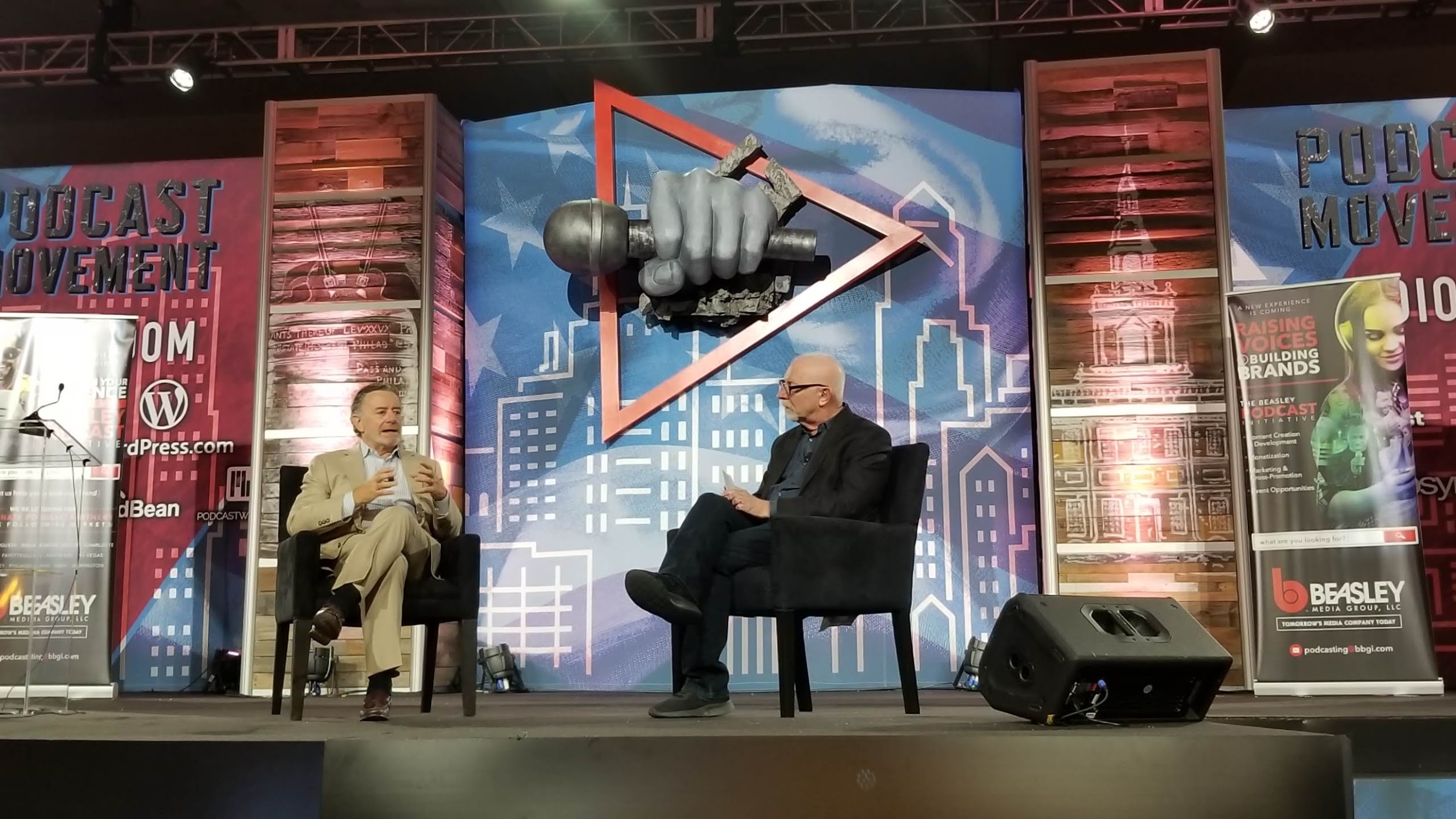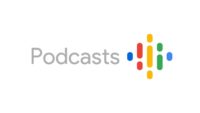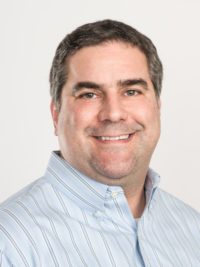
When we hired Seth Resler back in 2015, we knew we were getting someone well-versed in the digital arts. That’s why we bestowed the title of Digital Dot Connector on him. Seth is a strong proponent of content marketing, usability testing for mobile apps and websites, as well as email databases.
But he bleeds podcasting. And the first summer he was here, Seth essentially demanded we send him to the Podcast Movement conference that summer. It was located in Ft. Worth, and I figured if he wanted to spend three days communing with a small group of podcasters in the Texas heat in August, I wasn’t going to stand in his way.
So, now you know the rest of the story. Seth’s connection to podcasters and his belief in its efficacy as an audio platform has guided both Jacobs  Media and jacapps in our journey to help connect broadcasters with technology – both content and distribution – that can transform this storied industry.
Media and jacapps in our journey to help connect broadcasters with technology – both content and distribution – that can transform this storied industry.
In today’s post, Seth looks back on his time with us, his many conversations with our broadcasting clients, as well as his presentations around the country for radio people through the podcasting lens. This is an important perspective, and I hope you take the time to read it. – FJ
I’ve been passionate about the podcasting space since I first started listening to the Slate Political Gabfest over ten years ago, and since I recorded my first podcast episode almost seven years ago. Yet, when consulting radio stations over the last few years, I have been reluctant to endorse podcasting as a high priority.
As we’ve seen in our Techsurvey results, nearly half of all radio listeners never listen to podcasts. It’s much easier for a radio station to attract a large number of blog readers than a large number of podcast listeners because text has the ability to go viral on social media. In fact, audio almost never goes viral.
So, despite my love for the podcasting medium, I have always counseled radio broadcasters — who are universally strapped for time, personnel, and money — to invest their limited resources into text and video content first. “Podcasting can wait,” I would tell them.
Not anymore.
Why am I finally urging radio broadcasters to pull out the stops and pursue podcasting with everything they’ve got? A few reasons:
1. Google’s finally getting in the game.
 Until now, podcast listening has been largely an iPhone activity. Apple supported the medium by including podcasts in iTunes long ago, and then separated podcasts out into a native, dedicated app way back in 2014. As a result, roughly five times as much podcast listening happens on iOS devices as Android devices. But there are a lot more Android devices out there,
Until now, podcast listening has been largely an iPhone activity. Apple supported the medium by including podcasts in iTunes long ago, and then separated podcasts out into a native, dedicated app way back in 2014. As a result, roughly five times as much podcast listening happens on iOS devices as Android devices. But there are a lot more Android devices out there,
All of us in the podcasting space have been waiting for Google to get in the game, knowing that it could more than double the amount of podcast listening out there. At long last, it looks like they have. Google, with a team led by Zack Reneau-Weeden, has introduced the Google Podcasts app. Zack keynoted this year’s Podcast Movement conference in Philadelphia and has publicly made commitments to the space on behalf of Google in a way that we haven’t seen before.
While it’s going to take Google a while to do everything it needs to do to dramatically increase podcast listening (most notably, an icon on the homescreen), I’m optimistic they will eventually get there.
The term “game-changer” is often overused to an annoying extreme.
For podcasting, a native app on Android mobile devices would be a game-changer.
2. Sponsorship dollars will continue to flow in.

At this year’s Podcast Movement conference, we produced a track called “Broadcasters Meet Podcasters.” Bryan Moffett, the COO of National Public Media (NPR’s sales wing, in partnership with PBS and WGBH) led a discussion on podcasting revenue.
At the end of the panel, he cited a recent prediction that podcasting revenue would top $400 million in 2018. He asked his sales experts if they thought these predictions about the medium’s revenue growth were too high, too low, or on target. Every single one of them said that based on what they’ve seen, podcasting revenue is more robust than the already optimistic predictions that are out there.
3. It opens up new revenue channels.
But there’s more than one way to monetize a podcast. In the long run, advertising and sponsorship may be just a small percentage of podcasting’s revenue stream. We’ve already seen brands like Trader Joe’s and GE put significant dollars behind branded podcasts. Throw in live events, merchandise, and lead generation, and the revenue potential of podcasting looks very promising.
There are still metrics and measurement problems that have slowed podcasting’s financial potential. But when you see the IAB stage “upfronts” year after year that net millions of advertising revenue, there’s no doubt there’s a there there.
Right now, only a small percentage of podcasters are raking in the big bucks. As the medium grows and proliferates, that’s going to change. But radio broadcasters that treat podcasting as a cottage industry are going to end up disappointed when their initiative isn’t adding to the bottom line. In fact, a poorly executed, noncommittal podcasting program has the strong potential to lose money.
4. Audio is what broadcasters do best.
Audio content is radio’s core business. And while public radio broadcasters have largely embraced the medium, commercial broadcasters have watched as non-radio media outlets, from The New York Times to Comedy Central, have lapped us.
Sure, broadcasters have dabbled. Many stations are re-purposing on-air product as podcasts, either by uploading entire morning shows or editing down benchmark features. Some of commercial radio’s big syndicated personalities have had ancillary show members launch podcasts as side projects. But as a whole, commercial radio broadcasters are late to the game.
Many are now trying to jump in by delegating podcasting duties to an already overworked programming staff. We’ve watched this from our vantage point at Jacobs Media, and we’ve concluded that this simply isn’t enough. When a staffer takes on podcasting as an additional duty, no matter how talented they may be, the day-to-day duties of running radio stations pushes podcasting onto the back burner.
The urgent crowds out the important.
Unless broadcasters want to cede their position as the marquee creators of audio content, they need to hire people within their companies whose sole responsibility is to produce podcasts.
It’s time to hire a Director of Podcasts.

There is a handful of companies out there who have done this: Chris Peterson spearheads iHeartRadio’s podcasting efforts.
After years of toiling on podcasts in addition to his other duties, Canadian broadcaster Corus recently rewarded Chris “Dunner” Duncombe for his initiative by naming him as their Director of New Media.
Other radio companies, large and small, would be wise to now follow suit. And here’s a warning: Don’t expect this person to be the sole hire around podcasting. A director needs a team to direct, so this will be the first of many future hires: producers to produce the podcasts, editors to edit them, and salespeople to sell them.
In short, podcasting is such an important opportunity for radio broadcasters that they should change the staffing structure of their organizations to embrace it.
Radio broadcasters should look to their brethren in television for clues about the future. On-demand video has completely disrupted that industry. It’s not a big leap to conclude on-demand audio could do the same to our industry. Now is the time for us to invest in the future.
It’s time to start thinking strategically about podcasting.
If not, radio will run out of time.
- A Simple Digital Treat to Thank Your Radio Listeners This Thanksgiving - November 13, 2023
- Interview Questions When Hiring Your Radio Station’s Next Digital Marketing Manager - November 6, 2023
- A Radio Conversation with ChatGPT: Part 2 – Promotions - October 30, 2023




Important words here, Seth. Reading this blog, James Cridland and others, as well as following news from Podcast Movement, I wondered if it was just an echo chamber effect about a podcasting tipping point.
You deliver with a cudgel the point that the time is now.
Thanks, Eric. Podcast Movement did feel like a tipping point this year. Commercial radio had a far bigger presence than in years past. My hope is that next year, commercial radio brings program directors and air talent from its stations in addition to its corporate-level executives.
I have done a podcast on KLBJ in Austin with cohost Don Pryor for the last two years.
Been an absolute blast
It’s fun, isn’t it?
As the first VP of Podcast Programming in radio, I feel really left out Seth. 🙁
Matty Staudt
iHeartRadio
Didn’t mean to leave you out, Matty! Thank you for blazing the trail. Here’s hoping you can serve as an inspiration to other radio broadcasters around the world.
Matty, great to see you at Podcast Movement, and congrats on your pioneeering position.
Fred,
I’m constantly inspired by you and your team!
Great to finally meet!
Matty
Many thanks, Matty – right back at you.